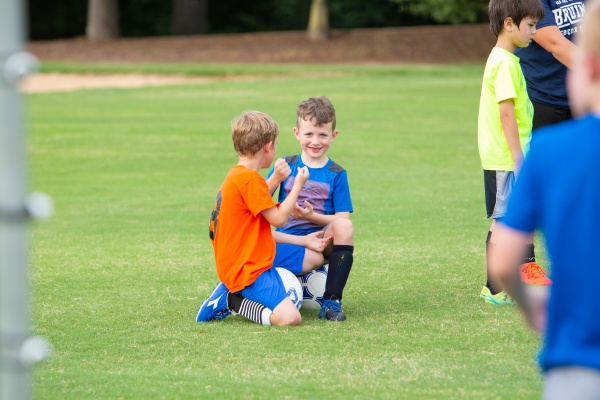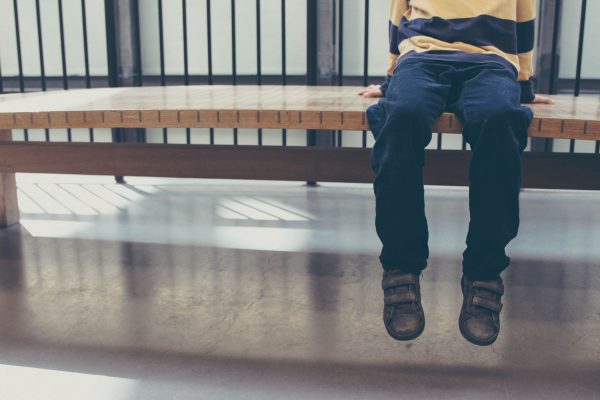We live in a fallen world that is filled with hurting humans. There are times when all of us need help to cope with the trials of life, but the cognitive and emotional limitations of childhood make kids especially needy when hard times hit. Add to this that children don’t always know how or who to ask for help. As adults, we must be alert to the needs of the kids God places in our lives, and we must be willing to get involved and help hurting kids.
Who Needs Our Help
Children Dealing with Death
One of the most obvious categories of hurting children is those who have lost loved ones. Children who have lost a parent, grandparent, friend or even a peer can struggle with uncertainty and fear. Sometimes these children will become clingy and not want to separate from loved ones because they are afraid the loved one may die while they are separated. This seems an irrational fear to an adult, but to a child who has just confronted death and loss for the first time, it does not seem so far-fetched.
Older children may need someone to talk to about death, life after death, or other important questions. Sometimes, children will not seek answers from those closest to them because they realize the emotions and pain these topics may cause. It’s important that non-family members spend time with grieving children and are ready to listen and help.
Children Dealing with Divorce
Children whose parents are separated or divorced often need help to deal with the emotions caused by the resulting family trauma. Young children may feel guilty as if they caused the problems that led to the divorce. They may also worry about the unknown—will I ever see Dad again? What if Mom forgets to take me to karate since Dad has always taken me? What if I get sick at school, who will come to pick me up? Older children may struggle with anger towards the parent they perceive as causing the divorce. And all children are likely to be very hurt and struggle with thoughts of being unimportant or abandoned.
Children Dealing with Abuse or Neglect
Some children suffer abuse or neglect at the hands of those they have trusted. These kids often feel hurt, depressed, angry, worthless, despairing or even guilty. Sometimes, the abuse is known and the child may be in foster care or living with relatives. Other times, the maltreatment has not been exposed, and the child is still experiencing it. These children need someone to believe them and to help them to process the unthinkable that they have experienced. Those helping them must acknowledge the wrong that has been done to them without encouraging bitterness or a victim mentality.
What to Look For
How can you know which kids are struggling? Sometimes it is quite obvious. If we are aware of a recent death or divorce, we know the children involved are hurting. If we know about the death of a loved one, we can assume that there is pain. But we don’t always know when families are in crisis from abuse or marital conflict, so what should we be watching for?
Being alert for changes in behavior is important. If you have an established relationship with a child or teen, a major change in attitude or behavior should be a red flag. We also need to be alert to extremes in behavior and socialization. Kids who are very aggressive, angry, sad or withdrawn should arrest our attention. Another sign can be a child or teen taking on more of a caregiving role for siblings; this can be a sign of abuse, neglect, or parents who are struggling with their own emotions to the extent that parenting quality has declined. Those of us who teach should also look for drops in grades or interest in academic and extracurricular activities that previously were enjoyed.
Help from God’s Word
God has graciously provided in His Word the help, guidance and direction that we need for all of life’s trials. However, children often need help to apply the Bible to their lives. But verses alone aren’t enough. We are also called to active compassion. Sometimes listening and acts of caring are needed before someone in pain is willing or able to listen to our biblical advice and encouragement. Regular times for talking (mostly listening), outings that provide relief from stressful home environments, help with homework, or gentle accountability can all be ways to show active compassion to those suffering.
Help for children who are grieving:
- Faith impacts grief (2 Thessalonians 4:13-18)
- Jesus receives the saved into heaven (Acts 7:54-8:2)
- Take courage and wait on the Lord (Psalm 27:14)
- God has a plan, and it is for good (Genesis 45:5)
- There will be a day when sadness and tears are over (Revelation 21:4)
Help for children facing instability and stress (abuse, placement in foster care, parental separation or divorce)
- There is an anchor for the soul (Hebrews 6:19)
- God has a plan for your good (Jeremiah 29:11)
- God provides peace (Philippians 4:6-7)
- God is with you and will provide salvation and peace (Zephaniah 3:17)
- Bitterness is wrong and very destructive (Hebrews 12:15, Ephesians 4:31)
Helping hurting kids can be emotionally draining and spiritually challenging, but there are benefits for you as well as the children you help. Not only are you helping a child to see Christ’s love, to process suffering in a biblical context, and to find Christ’s goodness in the midst of pain, but you are made very aware of your dependence on God for wisdom and guidance as you seek to guide.








